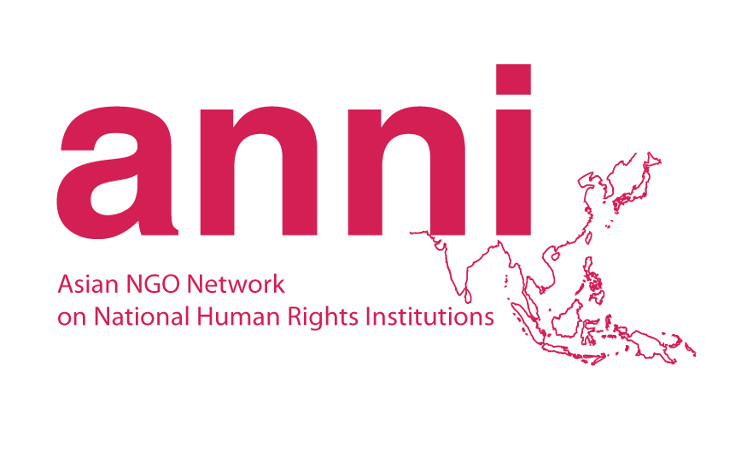Cooperation between NHRIs and civil society is essential in promoting and protecting human rights. The Paris Principles[1] and Global Alliance on NHRIs Sub-Committee on Accreditation (GANHRI-SCA)’s General Observations have emphasised the importance of NHRIs in maintaining close relations with civil society and to consider civil society as an important partner of NHRIs. These provisions are reflected in many of the laws establishing NHRIs that also provide specifically for engagement and cooperation with non-governmental organisations (NGOs)[2].
Although the Paris Principles have emphasised specifically on NGOs, this does not limit its engagement to any organisations, groups or associations that are devoted in promoting and protecting human rights. This includes civil society organisations (CSOs), trade unions, concerned social and professional organisations such as associations of lawyers, religious bodies, media, etc. Regardless of their titles, it is essential to consult and coordinate with these organisations if NHRIs are to discharge their responsibilities effectively.[3]
NHRIs and NGOs have strengths, capacities, expertise and experience that can be shared for their mutual advantage and, more importantly, for the better protection and promotion of human rights. Although NHRIs would select human rights NGOs in its country to work with, it is crucial for NHRIs to be inclusive and to provide opportunities for all NGOs that wish to cooperate with them. Furthermore, it is important to note that considering the expertise and experience of NGOs and civil society will likely result in a NHRI with greater public legitimacy.[4]
EXAMPLES
MALAYSIA-HUMAN RIGHTS COMMISSION OF MALAYSIA[5]
SUHAKAM has been working with civil society organisations on a nation-wide campaign advocating for Malaysia’s accession on the United Nations Convention against Torture, Degrading or inhuman Treatment (UN CAT). This is seen through the joint campaign by SUHAKAM with Malaysian Bar, Lawyers for Liberty, Amnesty International Malaysia, SUARAM and other civil society organisations. In order to promote greater public awareness of the campaign, they have created a dedicated Facebook Page entitled ‘ACT4CATMALAYSIA’, as well as two hashtags: #ACT4CAT (Act for the Convetnion Against Torture) and #HENTISEKSA (‘Stop torture’ in Malay). On top of the benefits derived from collaboration and sharing of expertise. Civil societies were granted opportunities to understand the inner working situation of SUHAKAM and had the space for direct engagement with SUHAKAM’s secretariat.
SRI LANKA- HUMAN RIGTHS COMMISSION OF SRI LANKA (HRCSL)[6]
In 2016, the HRCSL established proper channels of engagement and discussion with CSOs. The HRCSL has established nine thematic sub-committees for the purposes of facilitating public discourse on specific human rights issues. The themes of the nine sub-committees are: Rights of Migrant Workers; Rights of the Differently-abled Persons; Education Policy; Rights of Elders; Gender Issues; Custodial Violations; Rights of Plantation Workers; Economic, Social and Cultural Rights; and Rights of Lesbian, Gay, Bi-sexual, Transgender, Intersex and Questioning (LGBTIQ) Persons. The membership of the sub-committee includes representatives of CSOs. Additionally, the Regional Offices of the HRCSL have set up civil society networks. The sub-committees and civil society networks meet on a monthly basis with the Government Coordination Committee, therefore creating a public forum for the expression of different views, concerns and recommendations by CSOs and the HRCSL.
MONGOLIA-NATIONAL HUMAN RIGHTS COMMISSION OF MONGOLIA (NHRCM)[7]
The NHRCM held its biannual partnership meeting with CSOs on 4 December 2017, as part of events to celebrate International Human Rights Day and the upcoming 70th anniversary of the Universal Declaration of Human Rights (UDHR). The meeting was attended by the Commission’s Ex-Officio Board, made up of civil society representatives, to develop a joint programme for 2018.
At the meeting, the Ex-Officio Board[8] presented the newly appointed Board members that included 19 representatives from NGOs, academia, trade unions, international organisations and media. The diverse representatives brought expertise in relation to the rights of children, women, older people, youth, people with disabilities, sexual minorities, ethnic minorities and detainees, as well as in relation to health, education, religion and environment. The Board also presented its implementation of activities for 2014-2017 and discussed priority areas for the coming year. Participants from diverse NGOs, including the Mongolian Human Rights NGO Forum, expressed their interest in collaborating with the Commission in 2018 to:
- Co-organise events to celebrate the 70th Anniversary of UDHR, 25th Anniversary of Paris Principles, 20th Anniversary of UN Declaration on Human Rights Defenders, through public awareness raising and other promotional activities;
- Conduct a joint study on rights of older people;
- Co-organise a campaign to promote Government’s implementation of resolutions drawn from the Commission’s recommendations in its annual human rights reports;
- And undertake a joint inquiry and study on sexual health and reproductive rights of women and girls with disabilities.
***
[1] A set of international standards which frame and guide the work of NHRIS mark this year their 25th Anniversary. The internationally agreed Paris Principles define the role, composition, status and functions of national human rights institutions.
[2] Asia Pacific Forum of National Human Rights Institutions, A Manual on National Human Rights Institutions,2017, p. 208.
[3] B. Burdekin with J. Naum, National Human Rights Institutions in the Asia Pacific, 2007, p. 60-61.
[4] Asia Pacific Forum of National Human Rights Institutions, A Manual on National Human Rights Institutions,2017, p. 209.
[5] Suara Rakyat Malaysia (SUARAM), “Malaysia: A Misrepresented Commission and the Executive’s Alibi for Violation,” in 2017 ANNI Report on the Performance and Establishment of National Human Rights Institutions, compiled by Asian for Human Rights and Development (Bangkok: 2016), p.28.
[6] Law and Society Trust (LST), ”Sri Lanka: Reviving Amid Challenges”, Ibid, p.162
[7] National Human Rights Commission, Fourteenth meeting on “Partnership between the National Human Rights Commission of Mongolia and the Civil Society”, http://mn-nhrc.org/eng/main3/22/214-fourteenth-meeting-on-partnership-between-the-national-human-rights-commission-of-mongolia-and-the-civil-society.html , (accessed July 17, 2018).
[8] According to the Law on the National Human Rights Commission of Mongolia, the Commission can have an advisory board consisting of representatives from civil society organizations that work on human rights issues. The board plays an important role in ensuring there is diverse representation in the work and expertise of the Commission.




